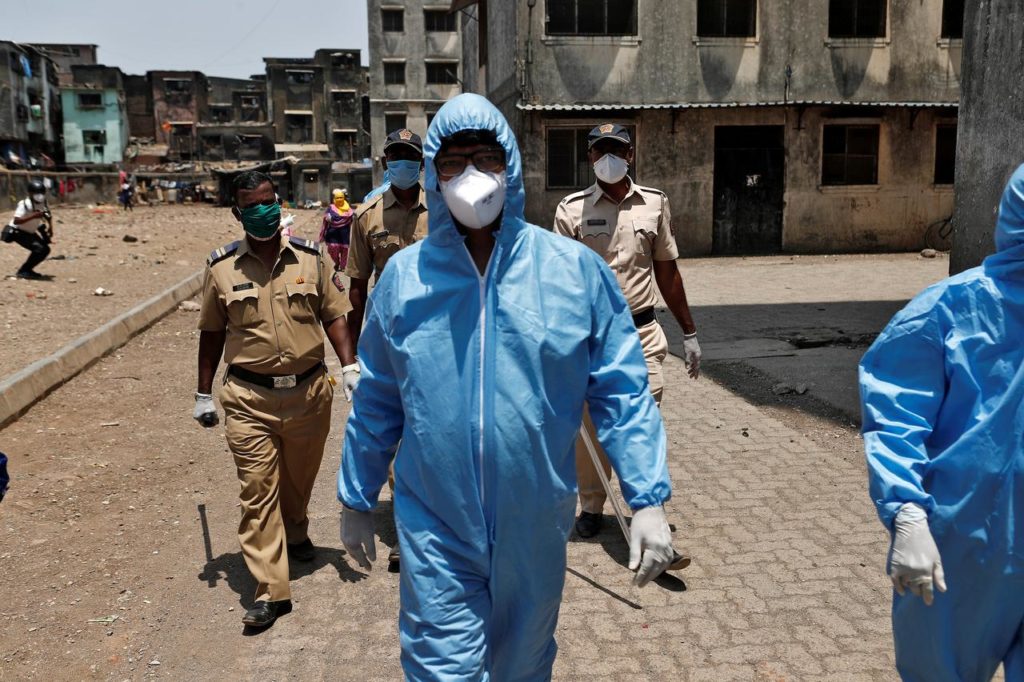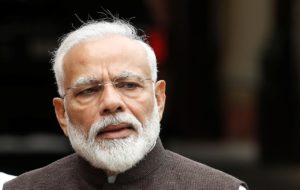Factbox: New Rules For The Coronavirus Lockdown

Health workers wearing hazmat suits and masks are accompanied by police officers as they conduct an inspection in a residential area, during a nationwide lockdown in India to slow the spread of COVID-19, in Dharavi, one of Asia's largest slums, during the coronavirus disease outbreak, in Mumbai on April 11, 2020
Prime Minister Narendra Modi’s government has extended a nationwide coronavirus lockdown until May 17 but has allowed some relaxations, which will take effect on Monday. The following lists what remains banned and what is permitted:
NATIONWIDE:
Travel by air, rail and metro and inter-state movement of people by road remains banned all over the country. Schools, hotels, restaurants, bars, shopping malls, cinemas and places of worship are also shut nationally.
There will be no restriction on movement of goods between states or on the manufacturing and distribution of essential items.
Beyond the national rules there are some distinctions on what is permitted, depending on the incidence of COVID-19 in different regions, which have been colour-coded accordingly.
RED ZONES:
The metropolises of Mumbai, New Delhi and Bengaluru have been designated as red zones – where most curbs remain in place. The classification is made based on the number of active coronavirus cases, the doubling rate of cases, and the level of testing and surveillance in the area.
In urban red zones that are not marked as containment zones – which are areas sealed off due to coronavirus cases – private offices can open at 33% capacity. Construction activity can also resume, as long as workers reside on site. Manufacturing of essential goods and IT hardware is permitted. E-commerce activities are only allowed for essential goods, while standalone shops are able to open.
In rural red zones, all agricultural, construction and industrial activity is permitted.
ORANGE ZONES:
In orange zones, all the activities allowed in red zones are permitted. In addition, taxis are allowed, provided they are carrying only two passengers, as is travel between districts for permitted activities.
GREEN ZONES:
Areas designated as green zones, or places that have not seen any incidence of COVID-19 in 21 days, are allowed to resume all activities except those prohibited nationally.
Buses are allowed to operate at 50% capacity.





